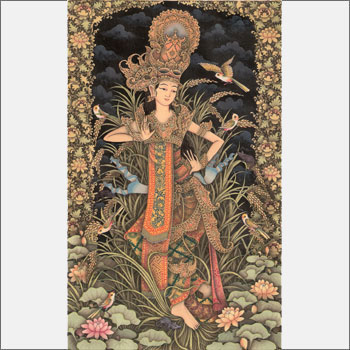.jpg) |
| Harrison at the Jaipur Literature Festival |
A Day In the Life Of...invites
people involved in book selling and the publishing industry in Asia to describe
a working day.
Flatcap Asia is a Hong Kong based arts and literary PR agency for Asia. The company
works with a range of global clients from the creative industries including BBC
World News, ZEE Jaipur Literature Festival, Random House UK, Harper Collins,
BAFTA, the Chinese University of Hong Kong and the British Council. Harrison
Kelly founded Flatcap Asia in 2010.
“I usually start my day around 7am. I
have a bad habit of reading all my emails on my iPhone immediately when I wake
up whilst still sat in bed. If it’s a particularly busy day this takes up
valuable time as I usually have to re-read them all again in the office before
I reply.
On Monday mornings I like to arrive
at the office for around 8am. Flatcap is based in The Hive, a co-working space
in Kennedy Town, just a short 10-minute commute from my apartment on Hollywood
Road.
When I arrive at the office, I
re-read all my emails and reply to most of them before 8.30am which is when
Charlotte, Senior Consultant at Flatcap Asia, arrives. Charlotte and I will
then discuss how the campaigns for several of our clients are going, and set
out the priorities and tasks for the week ahead.
At the moment we are managing a title
campaign in the East Asian press for Tim Clissold’s latest book Chinese Rules
on behalf of Harper Collins. As the books pages in newspapers are increasingly
being cut, it’s our job as a PR agency to get the book and the author out of
the books pages and mentioned across other sections of the media where the
author may find a new readership – in the opinion pages, or the lifestyle pages
for example.
We often have to think of creative
angles to get a journalist’s attention and interest in writing about a book –
particularly if it is a fiction or literary fiction title, which is only
published in English and isn’t set in Asia or by an Asian author.
Mid-morning, I usually have a
conference call with one of our regional clients such as BBC Global News to
catch up with their team and update them on the PR campaign. Although we
specialise in literature, we represent clients from across the creative
industries whether it’s TV, film, journalism, theatre or education.
When lunchtime arrives – often all
too quickly – I tend to head into Central two or three times a week to catch up
with a journalist, a sponsor or a client. Public relations really is an
industry built on relationships, so it’s always good to meet up with colleagues
for a good chat and a nice lunch deal – of which there are many in Hong Kong.
At 2pm, I usually have a call with
the ZEE Jaipur Literature Festival team in Delhi. Through Flatcap I consult as
Head of PR for the Festival, which is the world’s largest free literary
festival welcoming 250,000 guests, 800 media and 250 authors over five days. It
really is a huge logistical feat. My role is to set strategy and direction for
the traditional and social media campaign of the Festival. I’m fortunate to
have a brilliant team at Edelman India, another PR agency, that work on the
ground in India handling the campaign on a day-to-day basis.
The rise of literary festivals in
Asia is, in many ways, down to the huge success of Jaipur, which started with a
handful of authors back in 2006. I actually began my literary PR career at the
Hay Festival in the UK, before working at the Edinburgh International Book
Festival right before I moved to Hong Kong. There is an indescribable magic in
the air at literary festivals; it’s certainly an addictive energy for those
five adrenaline-fuelled days in Jaipur each January. I am looking forward to
visiting the Singapore Writers’ Festival later this month – but as a punter! –
and seeing Naomi Wolf and Suchen Christine Lim, as well as browsing the
Festival bookstore to discover the new contemporary voices of Singaporean
literature.
Mid-afternoon I catch up with Jan and
Louise who also work with me at Flatcap Asia. I don’t speak any other language
except English, yet the company works on a daily basis in both Traditional and
Simplified Chinese and so I am very fortunate to have great staff members who
can execute this non-English language media activity on behalf of our clients.
Around 4pm, London begins to wake up
and so when I see The Bookseller’s Morning Briefing ping into my inbox, I tend to take half an
hour out to catch up on the latest trade news from the industry as well as
having a look on Twitter to see what is driving the news agenda of the day.
Many in the publishing industry are
nervous about the rise of e-books and the demise of print. Regardless of age,
the data shows consumers still want print books. The key challenge for the
industry is maintaining a workable revenue model which accounts for the changes
in delivering published work to readers. I think it’s important to learn
lessons from what happened to the music industry in the early 2000’s. Thought
it’s hard to predict what publishing will look like in 12 months’ time, never mind
in 12 years, I do think print will always maintain its place and be consumed
alongside digital.
In many ways, for marketers, the
digital challenge creates an exciting opportunity as the traditional avenues of
reaching an audience for a book are suddenly been disrupted (or complemented?)
by other platforms, particularly social media, which allow readers to discover
books, authors or genres they may never have come across in a bricks and mortar
store.
Around 5pm, emails from our clients
in the UK begin to come through and so I turn my attention to that. One client
we work with a lot is BAFTA (the British Academy of Film and Television Arts).
Since last year, BAFTA has been hosting a range of activities in Hong Kong, aiming
to inspire the city’s next generation of aspiring film, TV and games
professionals. It’s been great fun supporting them on the ground here in Hong Kong.
Towards the end of the day I tend to
focus on more admin related activity. This can be boring things like sorting
out my accounts or general business management, through to more fun stuff like
pulling together coverage reports for our clients. I am working on two of these
at the moment, one for StoryWorthyWeek, an annual storytelling festival in Hong
Kong, and one for Susan Barker, the incredibly talented author of The Incarnations, which we
recently represented. A coverage report gives the client an overview of the
campaign to date as well as showing all the media coverage earned so far, as
well as the reach and value of the coverage.
I usually leave the office on time at
7:30pm when I will head out for dinner with friends or head out to see a
production by one of our theatre clients. There is a really strong
English-language theatre scene in Hong Kong, and thanks to groups such as
Liars’ League and Hong Kong Storytellers there is also a growing live literature scene
too.”
Twitter: @HarrisonJKelly / @FlatcapAsia





.jpg)




